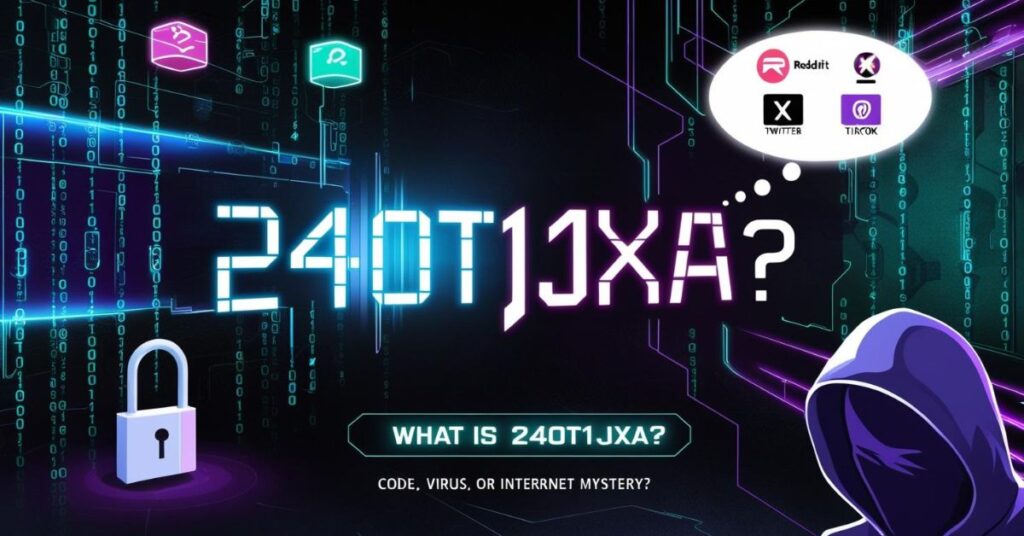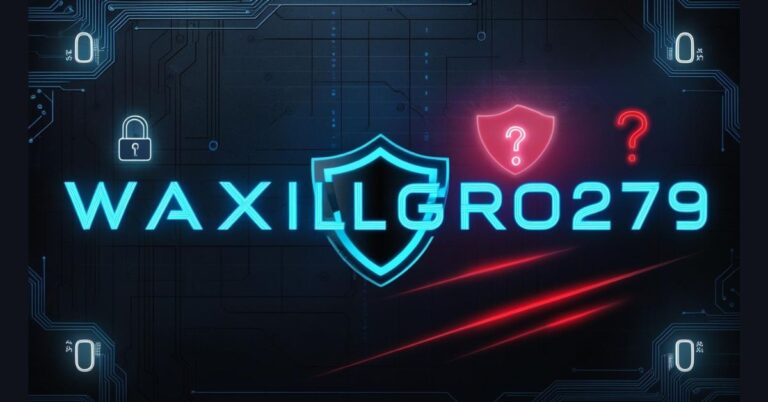
24ot1jxa
In the fast-changing online world, random terms and codes often grab the interest of internet communities. One such mysterious string that has recently surfaced is “24ot1jxa.” It might seem like a random mix of letters and numbers. Still, it has caught the interest, speculation, and worry of internet users. This article will look into what 24ot1jxa means. We’ll discuss its uses and why it’s important, especially in cybersecurity, digital development, and online culture.
What Does “24ot1jxa” Mean?
At first glance, 24ot1jxa appears to be an arbitrary alphanumeric string. It may not have a clear dictionary definition or history, but it’s used in online forums, cybersecurity logs, and digital marketing reports. This suggests it serves different purposes. In many cases, such strings are not accidental—they serve as identifiers, codes, or markers for internal systems.
Possible Explanations for 24ot1jxa
1. System or Session Identifier
One of the most plausible uses of 24ot1jxa is as a system-generated identifier. In programming and web development, people often use auto-generated strings. These include session IDs, API keys, database references, and login tokens. These strings are typically designed to be unique, difficult to guess, and secure.
When you use a web service that needs you to log in or send data, the backend probably uses a similar identifier to keep your session safe. 24ot1jxa might be an example from a development environment, a test server, or a third-party integration.
2. Malware or Trojan Identifier
Security researchers say 24ot1jxa might link to malware or Remote Access Trojans (RATs) in cybersecurity discussions. These malicious tools enable hackers to take control of infected systems, extract data, or spy on users remotely.
In some threat reports, 24ot1jxa shows up in malicious payloads, registry entries, or suspicious files. If you find this string on your system, run an antivirus scan. You can also talk to cybersecurity experts for help.
3. Placeholder Text for Development
Another common use of random-looking strings like 24ot1jxa is as placeholder content. Just like “lorem ipsum” helps in design mockups, developers use alphanumeric strings. They do this to test features, mimic user inputs, or fill fields in early development.
This might explain why it shows up on prototype websites, unfinished pages, or beta software.
4. Internet Meme or Viral Code
The internet loves a good mystery, and terms like 24ot1jxa often take on a life of their own in meme culture. Reddit threads, Twitter posts, and TikTok videos have spread this term. There’s no clear explanation, so people are guessing its meaning.
Some people now use 24ot1jxa in a funny or secretive way. It’s become an inside joke or a digital Easter egg. This cultural adoption can give a once-meaningless term viral status.
Is 24ot1jxa Dangerous?
While there is no definitive answer, the context in which 24ot1jxa appears can determine whether it’s harmless or harmful. Here are a few scenarios:
- Appears in browser URLs or cookies: Likely a session or page ID, harmless in most cases.
- Appears in system registries or executable files: Could indicate malware. Run a full system scan immediately.
- Seen in website templates or design mockups: Probably a placeholder string, not a cause for concern.
- Circulated in meme content: Just an internet trend or joke.
If you’re unsure, err on the side of caution. Use a trusted antivirus or malware removal tool to check your system.
How to Protect Yourself from Unknown Code Strings
If encountering strings like 24ot1jxa raises a red flag for you, here are some best practices:
1. Keep Your System Updated
Ensure your operating system, antivirus, and browser are always up to date. Security patches are critical to protect against new threats.
2. Avoid Clicking Suspicious Links
If you see “24ot1jxa” in a link or URL from an unknown source, don’t click it. It may redirect to a phishing site or attempt to install malicious software.
3. Scan for Malware
Use trusted security software, like Malwarebytes, Bitdefender, or Norton. They can scan for threats linked to unusual strings.
4. Check Online Forums
Platforms like Reddit, Stack Overflow, and GitHub have discussions about unexplained technical terms. A quick search can show if others faced the same problem.
Conclusion: What You Should Know About 24ot1jxa
In summary, 24ot1jxa is a mysterious and potentially multi-purpose term. Depending on where you encounter it, it might be:
- A secure identifier in a digital system.
- A malware-related label.
- A random placeholder string for development.
- An emerging meme or viral internet code.
Its growth in online talks and search trends shows how unpredictable internet culture is. This is why staying informed is so important. If you’re a developer, a security-minded user, or just curious, knowing these terms helps you explore the digital world more safely and smartly.
If you’ve seen 24ot1jxa on your system or website, take a moment to analyze the context. And remember, not every strange code is dangerous—but being cautious is always a smart approach.
FAQs
1. What does 24ot1jxa stand for?
24ot1jxa does not currently have a widely recognized meaning or definition. It looks like a random mix of letters and numbers. It might serve as a system ID, a development placeholder, or an internal code.
2. Is 24ot1jxa a virus or malware?
Not necessarily. Some security reports link similar strings to malware or trojans. However, 24ot1jxa is not confirmed to be harmful on its own. If you encounter it unexpectedly in system files, it’s best to run a malware scan for safety.
3. Why is 24ot1jxa trending online?
The string has caught interest in forum talks, tech papers, and maybe social media. Curiosity about its origin and use has led to increased search activity.
4. Could 24ot1jxa be a session or API key?
Yes. Strings like 24ot1jxa are common in web development. They serve as session tokens, API keys, or unique identifiers in backend systems.
5. Where might I encounter 24ot1jxa?
You may find 24ot1jxa in URLs, log files, settings, web code, or browser cookies. It could be part of a development placeholder, a security token, or a generated string from a backend server.
6. Should I be concerned if I find 24ot1jxa on my computer?
Not immediately. If you didn’t download or install anything suspicious recently, it may be harmless. However, if you suspect foul play or notice unusual system behavior, scan your system with trusted antivirus software.
7. Is 24ot1jxa used in any programming language or framework?
It is not a recognized keyword or function in any programming language. Developers often use random strings. They apply them for testing, simulation, or encryption keys in many languages and frameworks.
8. Can 24ot1jxa be related to a phishing scam?
It’s possible but not confirmed. If 24ot1jxa appears in a suspicious email, link, or website, don’t interact with it. Always verify the source and scan for malware before proceeding.
9. Is 24ot1jxa part of an ARG or internet mystery?
Some internet users think it might be an Alternate Reality Game (ARG) or an online riddle. However, there is no confirmed campaign or story linked to 24ot1jxa right now.
10. How can I protect myself from unknown code strings like 24ot1jxa?
- Keep your software updated.
- Use trusted antivirus tools.
- Avoid clicking on unknown links.
- Learn about cyber hygiene.
If you see unfamiliar strings like 24ot1jxa, investigate their context before acting.



